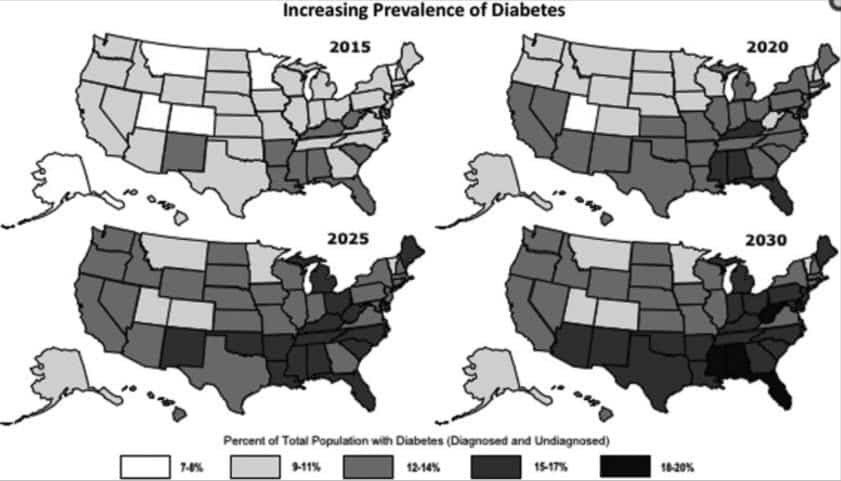
[cmamad id=”15889″ align=”center” tabid=”display-desktop” mobid=”display-desktop” stg=””]
Completely new and important info on E407 (carrageenan)…hidden food additive that you MUST know about
————-
Are you eating too much E407 (carrageenan)?
Carrageenan is a food additive that is extracted from seaweeds.
It is a fiber, a starch-like substance that is added to many foods.
Carrageenan is used for its gelling, thickening, and stabilizing properties.
It’s in ice cream, coffee cream, canned pet foods, soy milk, hot dogs, the condensed milk in your mother’s corn chowder recipe – it’s in any processed food that needs thickening and texture.
Carrageenan has been implicated in many diseases – particularly those relating to the gut.
And now carrageenan has been implicated in the development of diabetes.

This study was conducted at the Department of Medicine at the University of Illinois at Chicago. The results were published in the journal Diabetologia.
These researchers carried out multiple experiments on live mice and on human cell cultures.
Prior to this study, many previous experiments showed that carrageenan is inflammatory.
Its inflammatory nature, particularly in the gut, made scientists suspect that it may be a cause of diabetes.
Hmmm…
“Carrageenan is known to cause inflammation through interaction with toll-like receptor-4, which is associated with inflammation in diabetes.”
So the study set out to find out what effect carrageenan has on glucose tolerance, insulin sensitivity, and insulin signaling.
These are all factors in the development of diabetes.
[cmamad id=”15890″ align=”center” tabid=”display-desktop” mobid=”display-desktop” stg=””]
“The aim of this study was to determine the impact of carrageenan on glucose tolerance, insulin sensitivity, and insulin signaling in a mouse model and human liver cells.”
The researchers gave mice supplemental carrageenan in their drinking water.
Then they tested their glucose tolerance and insulin tolerance.
Carrageenan quickly impaired glucose tolerance in mice.
“Glucose tolerance was significantly impaired in carrageenan-treated 12-week-old mice compared with untreated controls at all time points.”
Carrageenan-supplemented mice also had significantly elevated insulin levels, both at baseline and in response to a glucose test.
“Baseline insulin and insulin levels at 30 minutes after taking glucose during the glucose tolerance test were significantly higher following carrageenan treatment.”
Mice given carrageenan quickly became diabetic…
Because they were unable to dispose of glucose.
“During the insulin tolerance test, glucose levels declined by more than 80% in controls, but not in carrageenan-treated mice.”
These are probably shocking results for anyone who is not already familiar with the effects of carrageenan.
The scientists saw similar effects in human cells.
“Carrageenan exposure completely inhibited insulin-induced increases in phospho-(Ser473)-Akt [an antibody] and PI3K [an enzyme] activity in vivo in mouse liver and in human HepG2 [liver cancer] cells.”
The two enzymes that they tested above (Akt and PI3K) are both thought to be critical in the development of diabetes.
This PI3K-Akt pathway dysregulation has been linked to a range of diseases such as cancer and type 2 diabetes.
Carrageenan can cause type 2 diabetes symptoms and metabolic syndrome in mice and in human cells.
“Carrageenan impairs glucose tolerance, increases insulin resistance, and inhibits insulin signaling in vivo in mouse liver and human cells.”
In another part of the experiment, scientists used compounds to block the inflammation caused by carrageenan.
Blocking this inflammation prevented the damaging effects of carrageenan.
“These effects were blocked when carrageenan-induced inflammation was inhibited.”
The authors determine that carrageenan is harmful because of what they already suspected: It is inflammatory.
“These effects may result from carrageenan-induced inflammation.”
Scientists have known for a long time about the damaging effects carrageenan has on the gut.
Carrageenan does to your inside what poison ivy does to your outside.
Some people are sensitive enough to have an immediate reaction to it.
Those people are the canaries in the coal mine… But it’s affecting all of us.
And now…
This is one of the first studies to show that carrageenan has pathological systemic effects – outside of the gut/colon.
“The results demonstrate extracolonic manifestations of ingested carrageenan.”
The authors go so far as to say that carrageenan could contribute to the development of diabetes.
This seems to be a reasonable assumption, given what the study has found.
“The results demonstrate that ingested carrageenan in the human diet may contribute to the development of diabetes.”
Carrageenan is an extremely common food additive, sometimes listed under the code E407.
Carrageenan is very common in desserts and processed dairy products.
It’s also very common in processed meats and sauces and in many other processed foods.
And, as mentioned above, many pet foods contain carrageenan as well.
Carrageenan is one additive that I avoid completely.
You should see a healthcare professional for diagnosis or treatment of diabetes, insulin, and blood sugar problems.
—-Read further if you’re curious (important message)—-
The picture below shows a US government forecast for diabetes. The darker the state, the more diabetes will develop. Notice where all the diabetes is developing…

It’s developing in the southern United States.
And somewhere in the Midwest. You can really see that certain states on the map are very dark, such as Georgia and Florida.
Now if you look at what these states are doing, you’ll see that their diet is very different – most of the foods there contain tons of carrageenan (E407).
I have studied diabetes and found out that certain diets that the US government heavily recommends are causing the diabetes epidemic.
I actually discovered five foods that promote diabetes in men.
These five foods are very common – especially in the southern states with the most diabetes.
But the worst of it is that the US government actually recommends these five foods that promote diabetes.
The government recommends them because, in my opinion, they are in bed with Big Pharma and with Big Agriculture.
It’s not small family farms that are producing these five dangerous diabetes-promoting foods.
Giant agricultural operations – heavily subsidized by the United States government – produce these foods.
And the government is recommending that people consume these five foods – even though they promote diabetes.
Here are the 5 foods that cause diabetes even faster than carrageenan.
———


Leave a Reply